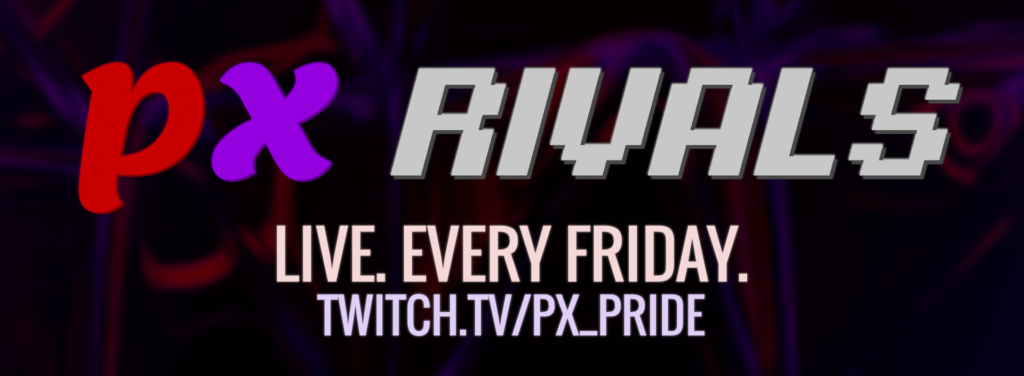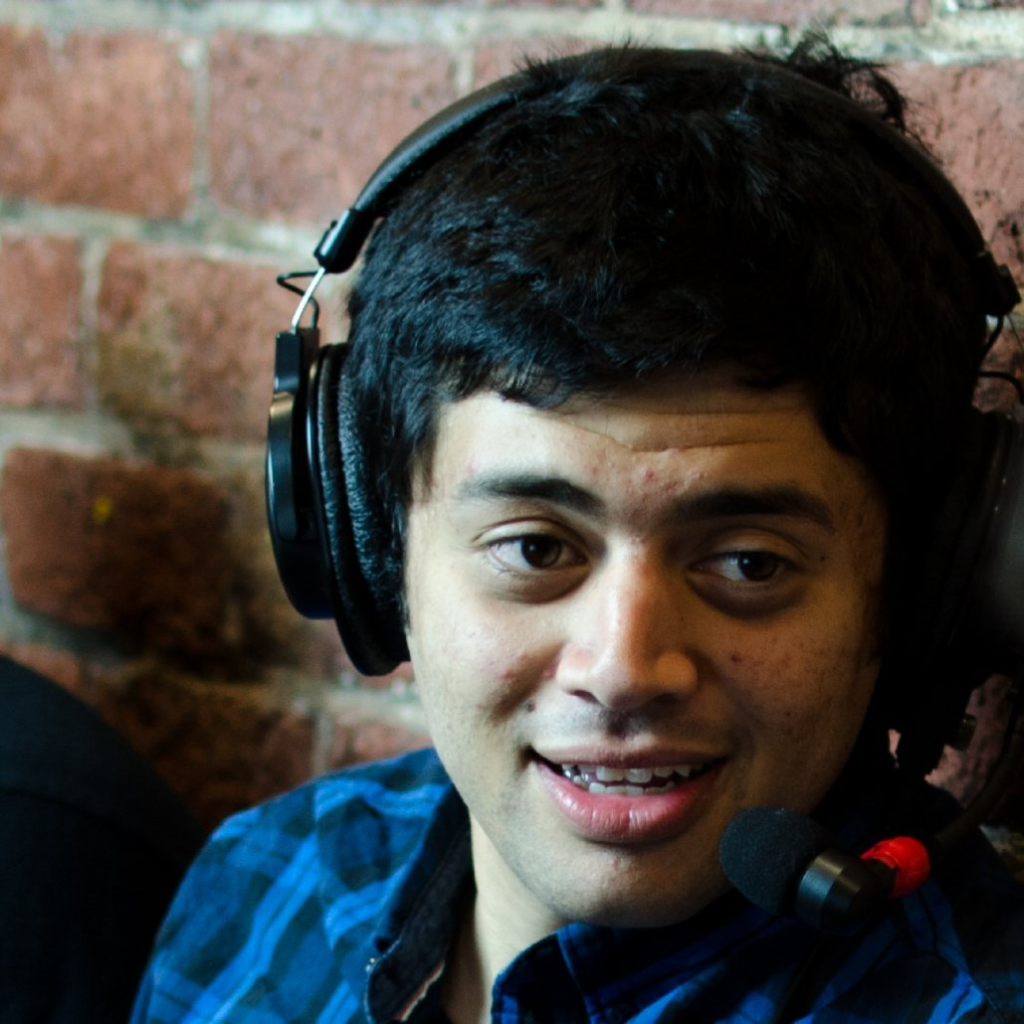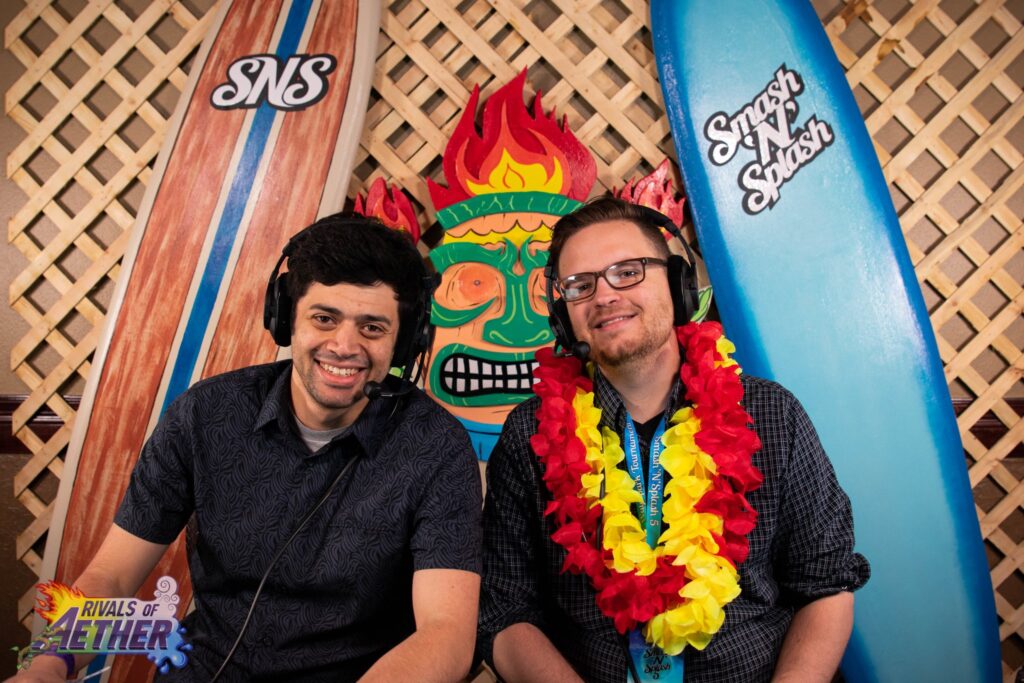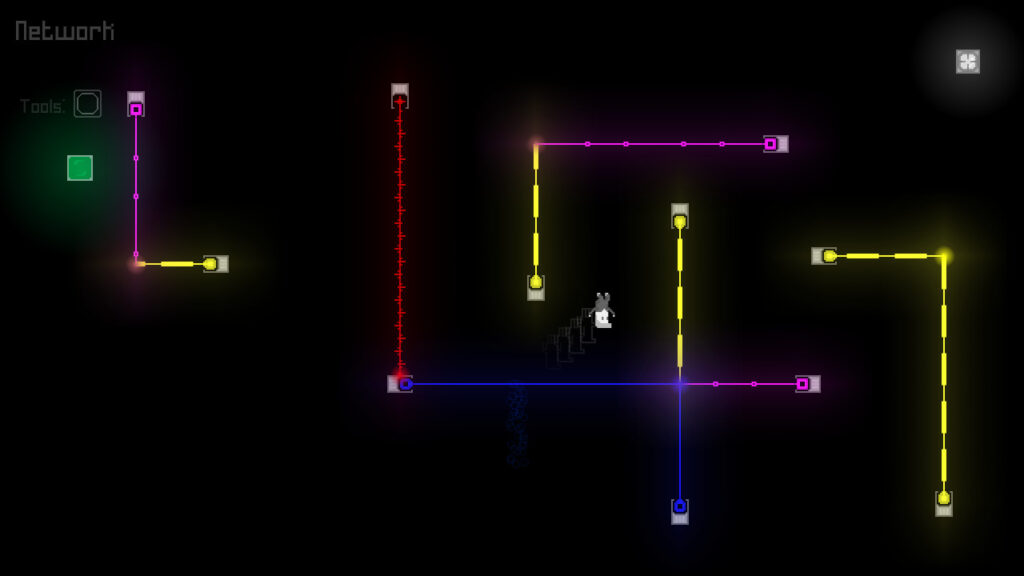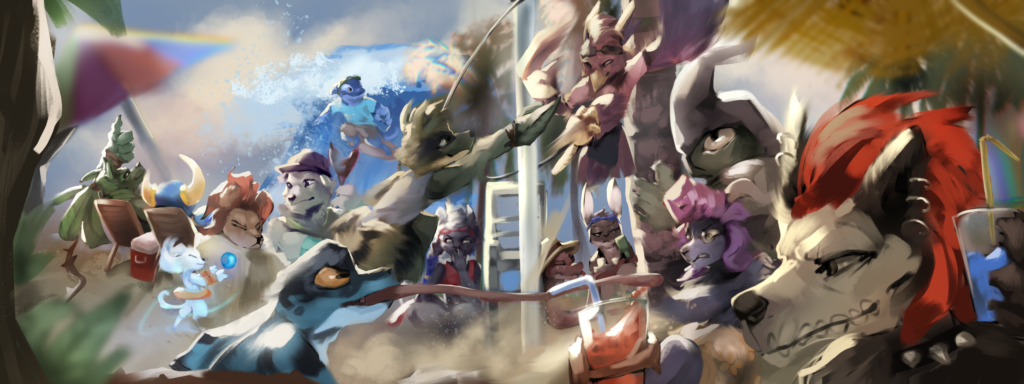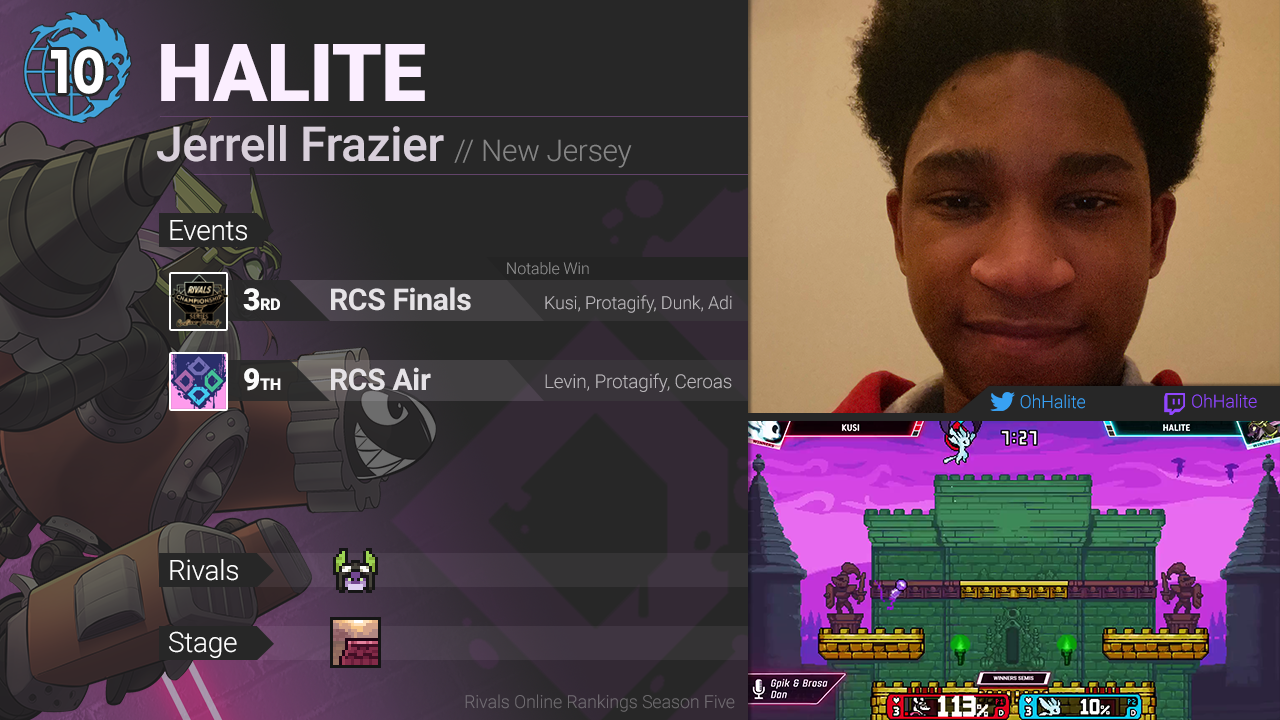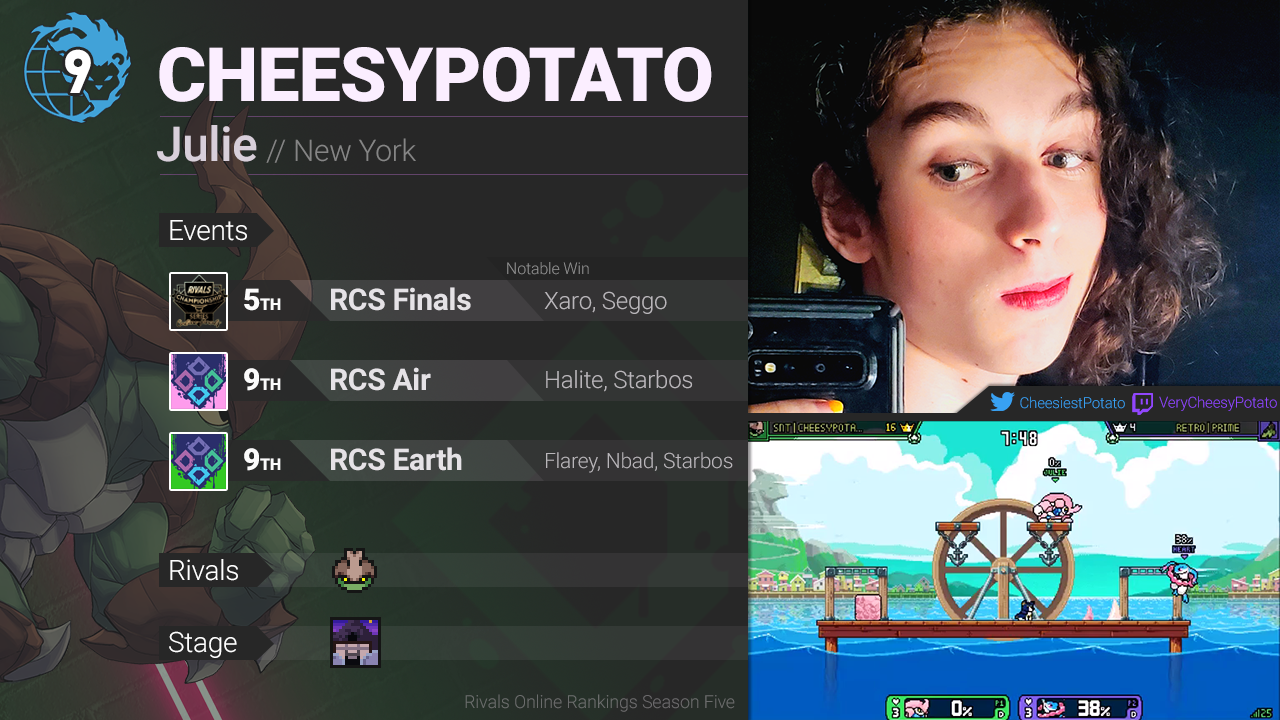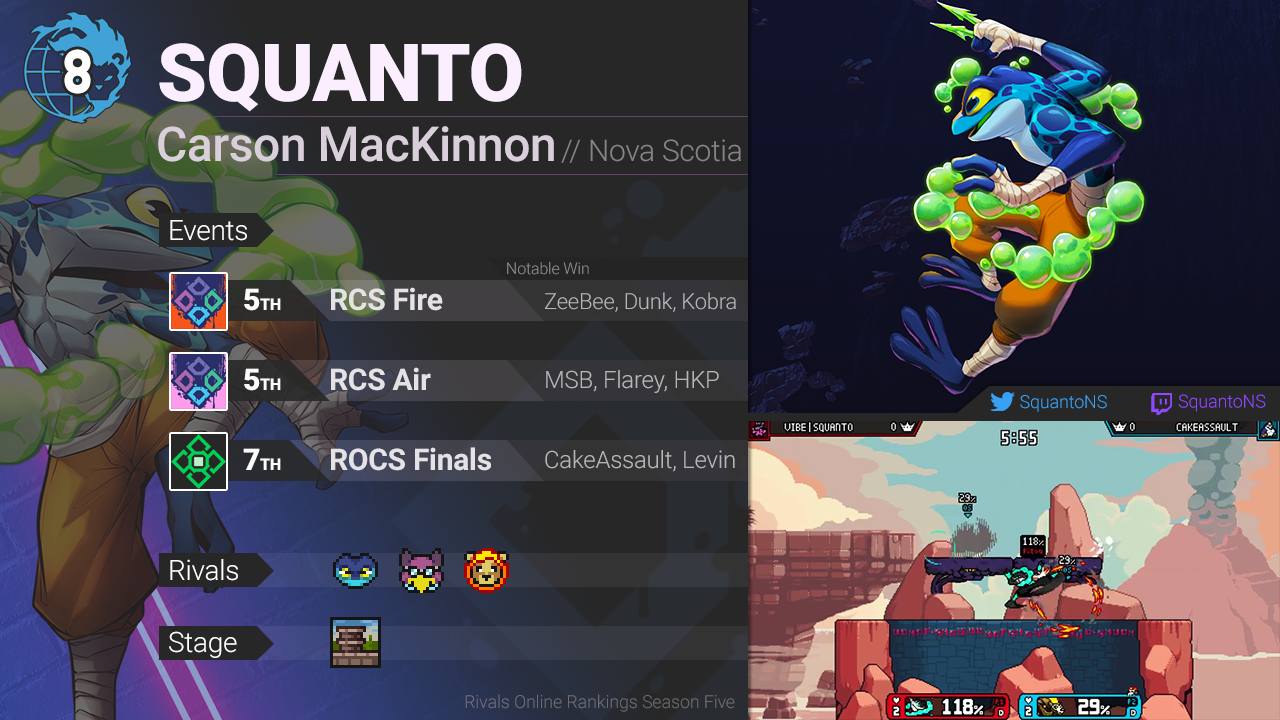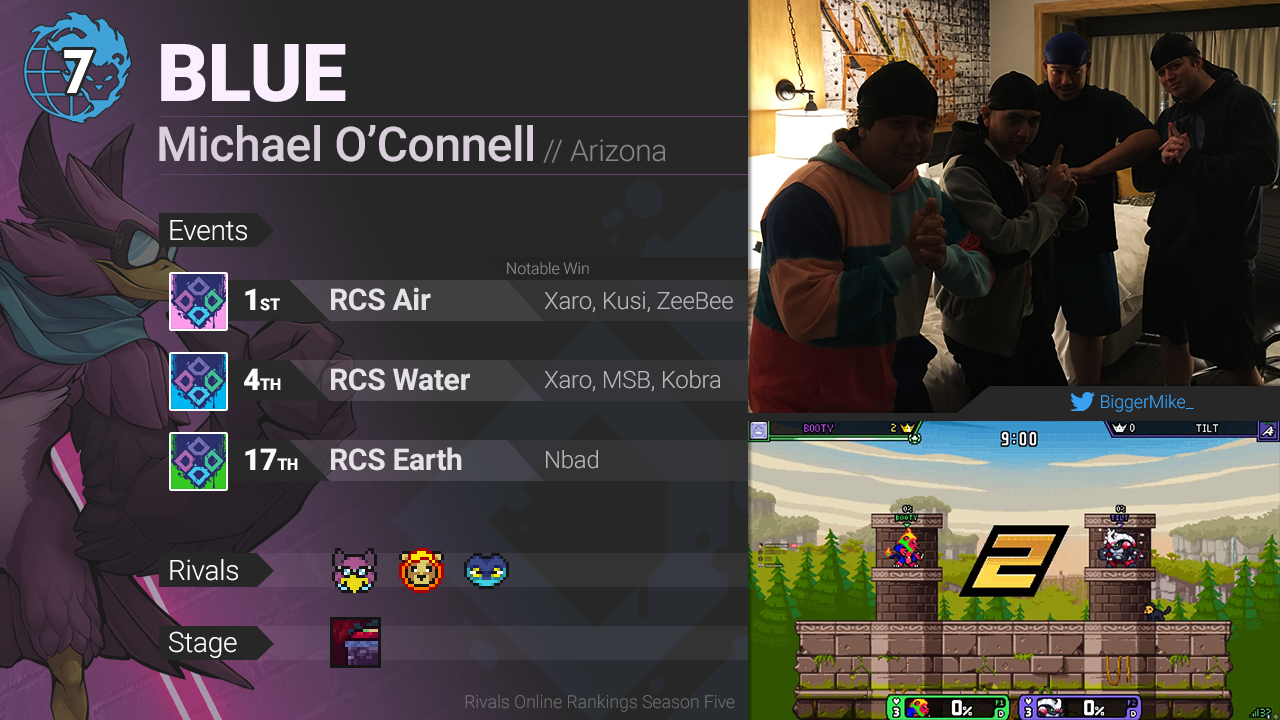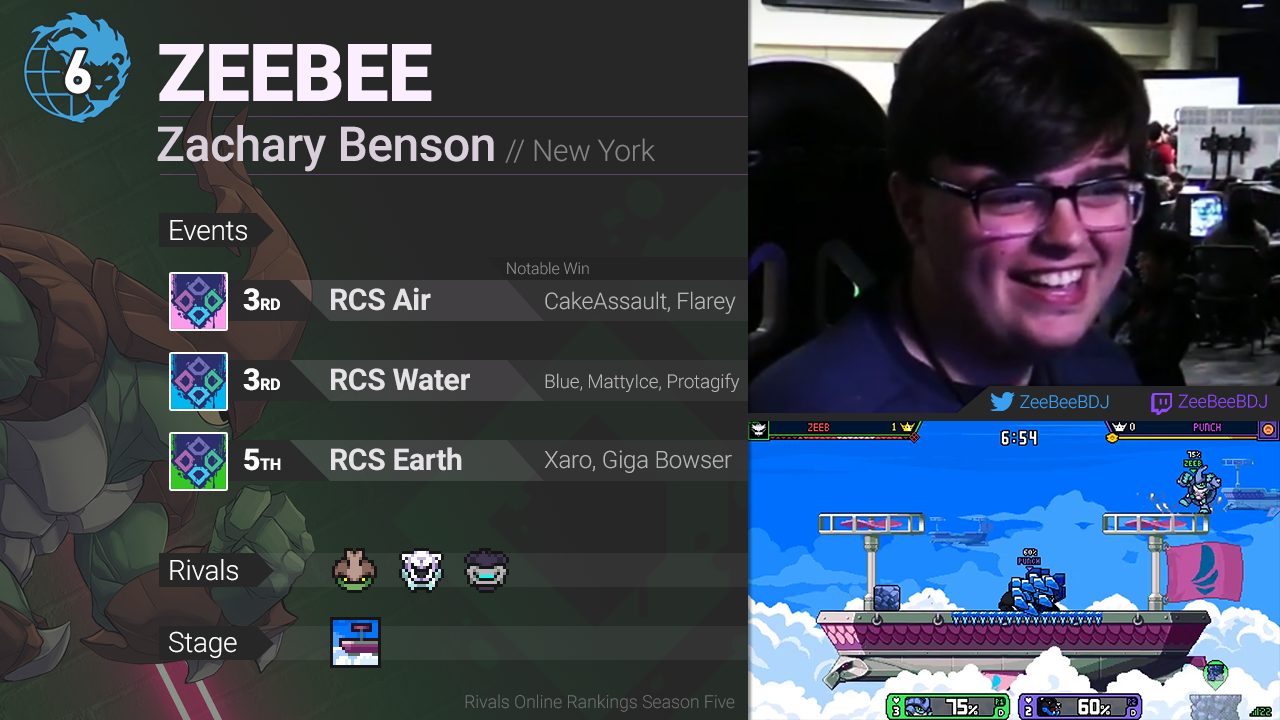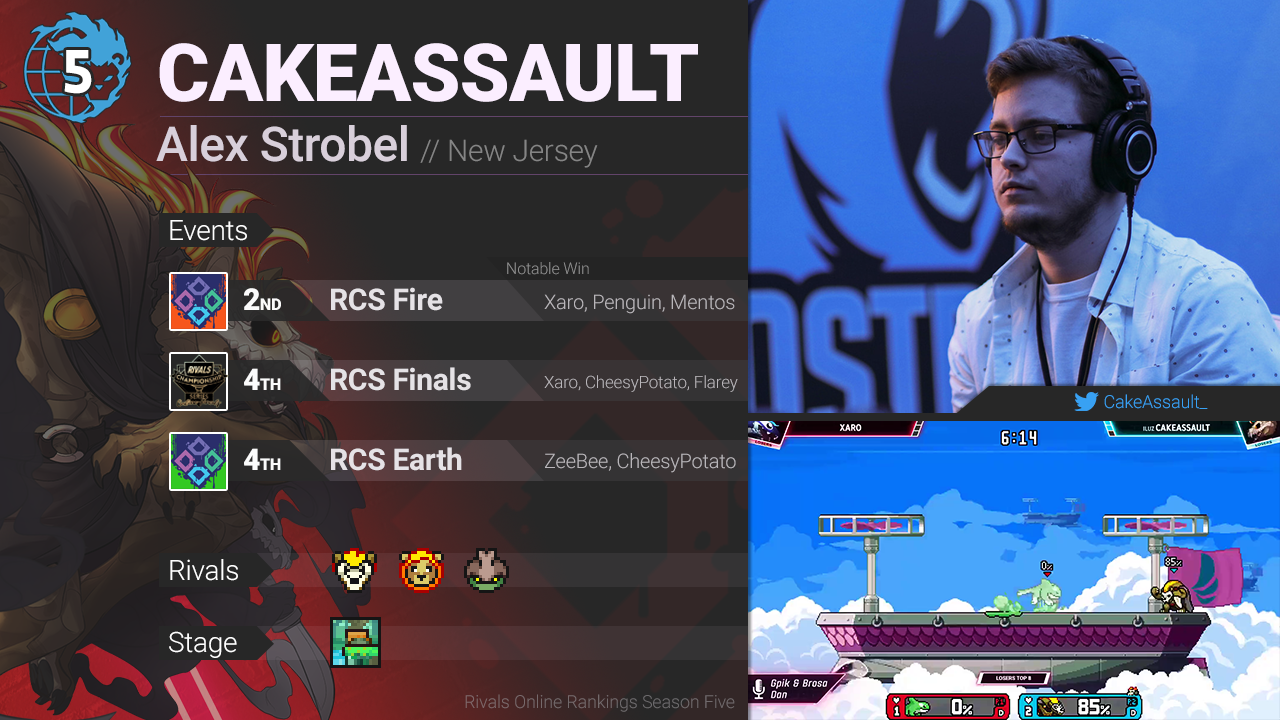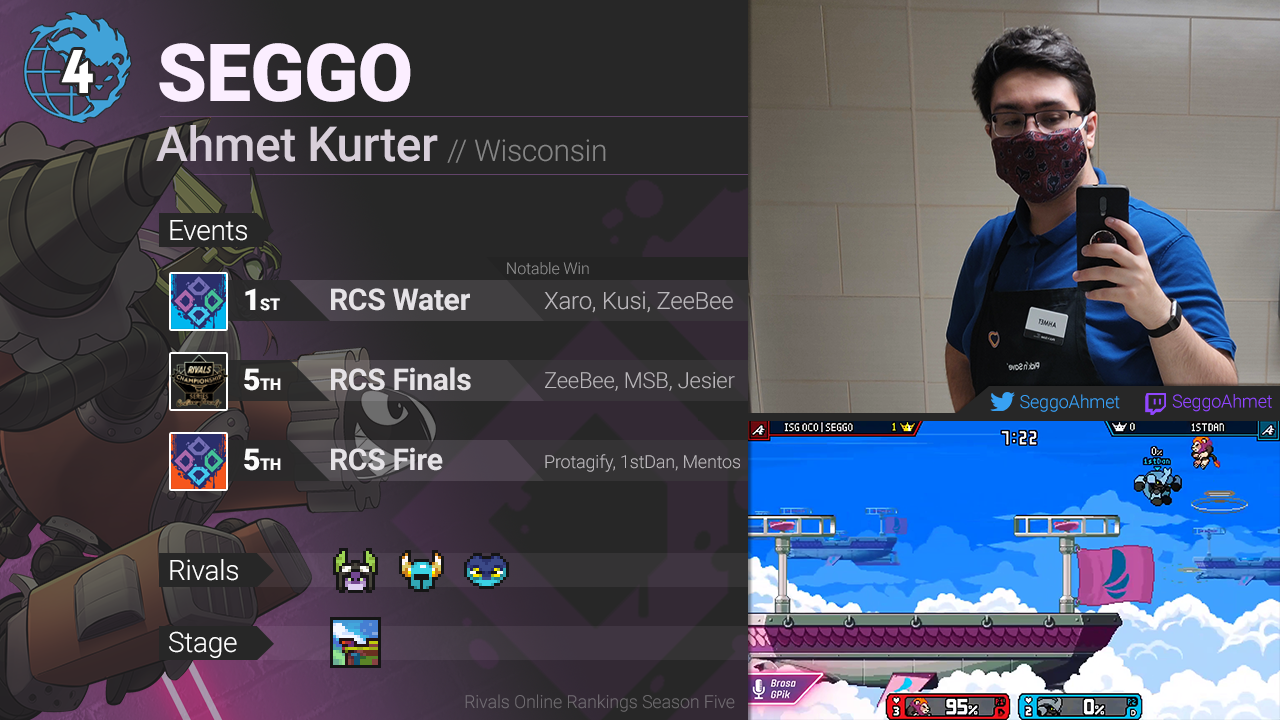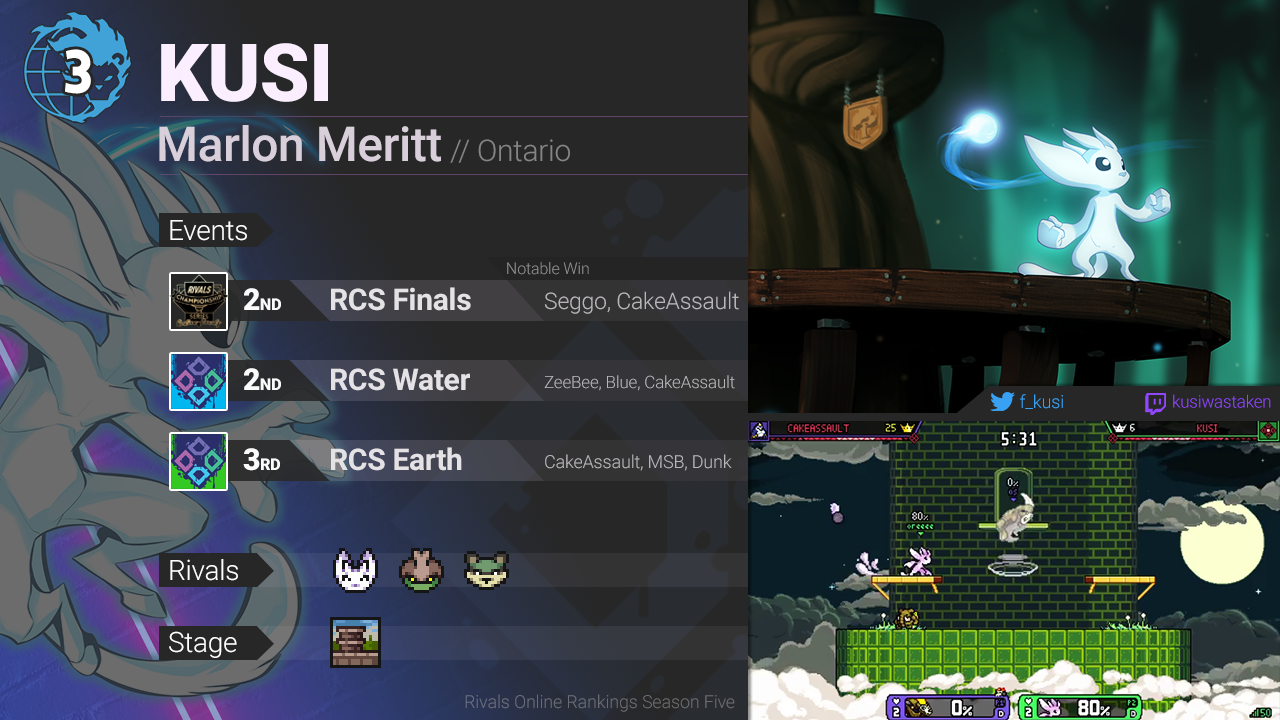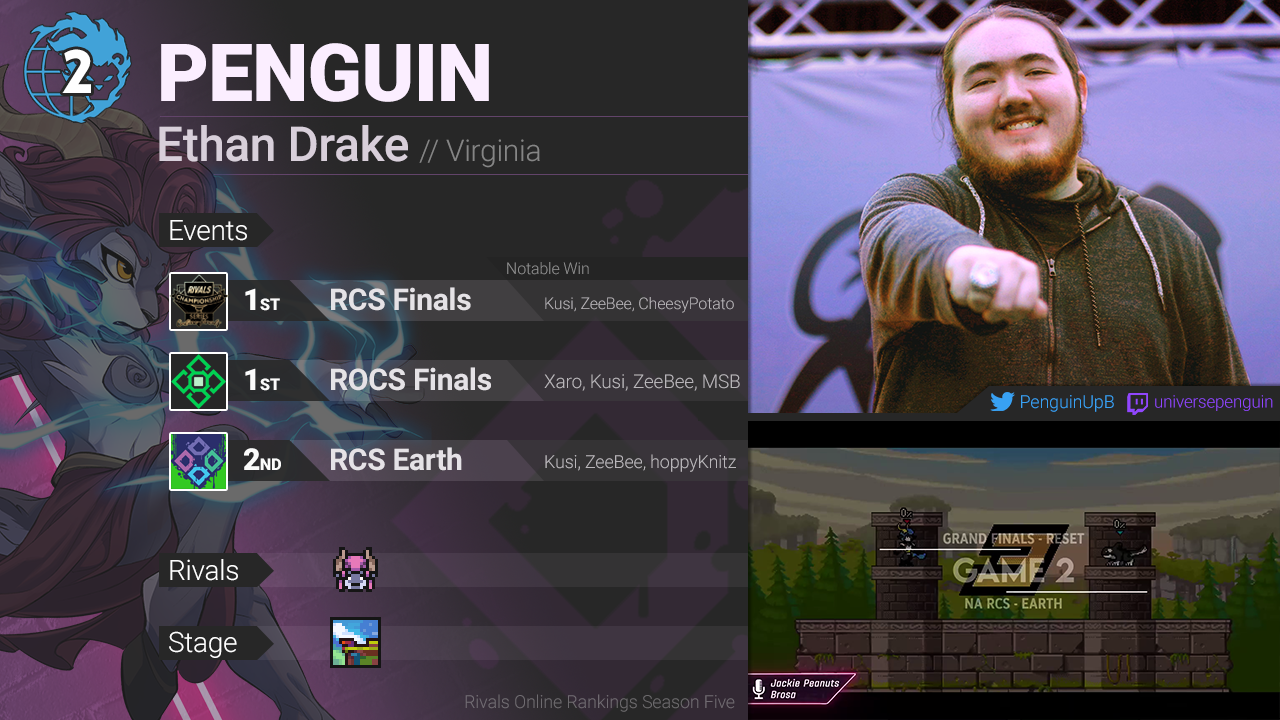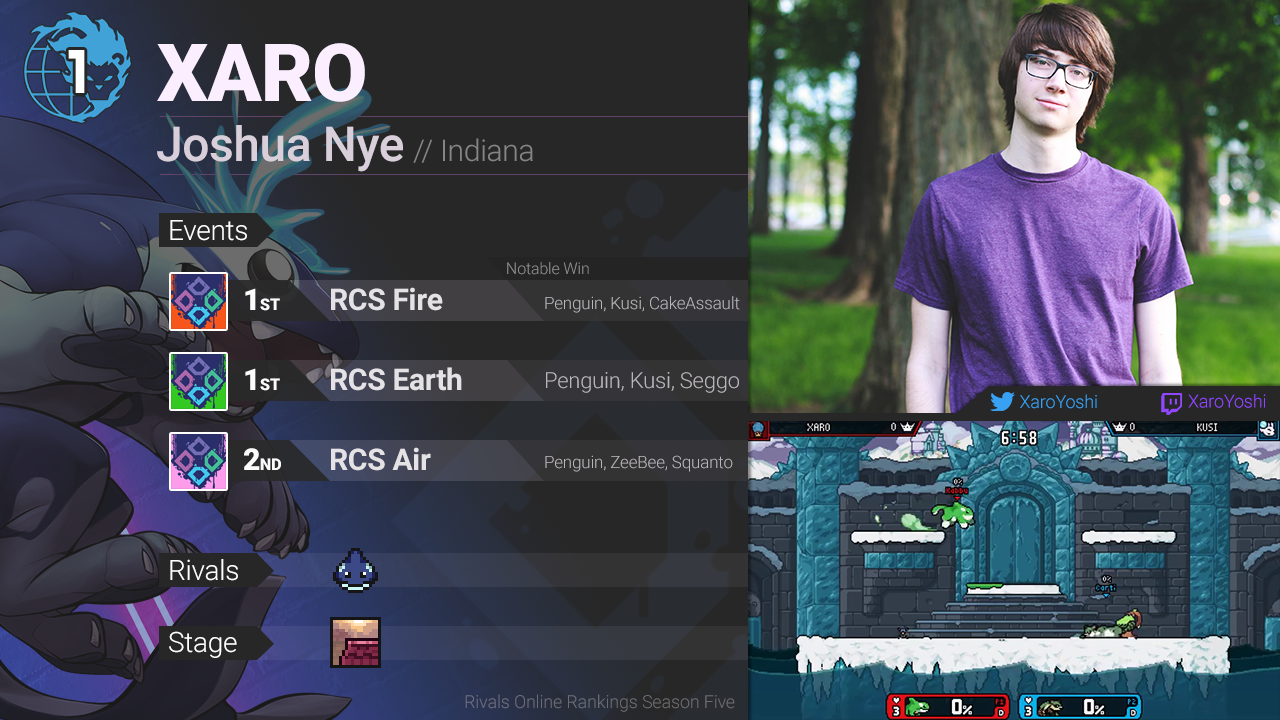Penguin is without a doubt one of the best players in Rivals of Aether history. He’s been ranked on every Top 50 to date, has been a Top 10 player since Season 2, and Top 3 since Season 3. Penguin’s rise to the spotlight brought him to the Grand Finals of RCS Finals three years in a row, where he finally captured first place to cap off Season 5. We recently reached out to Penguin to learn more about him and his history in Rivals.
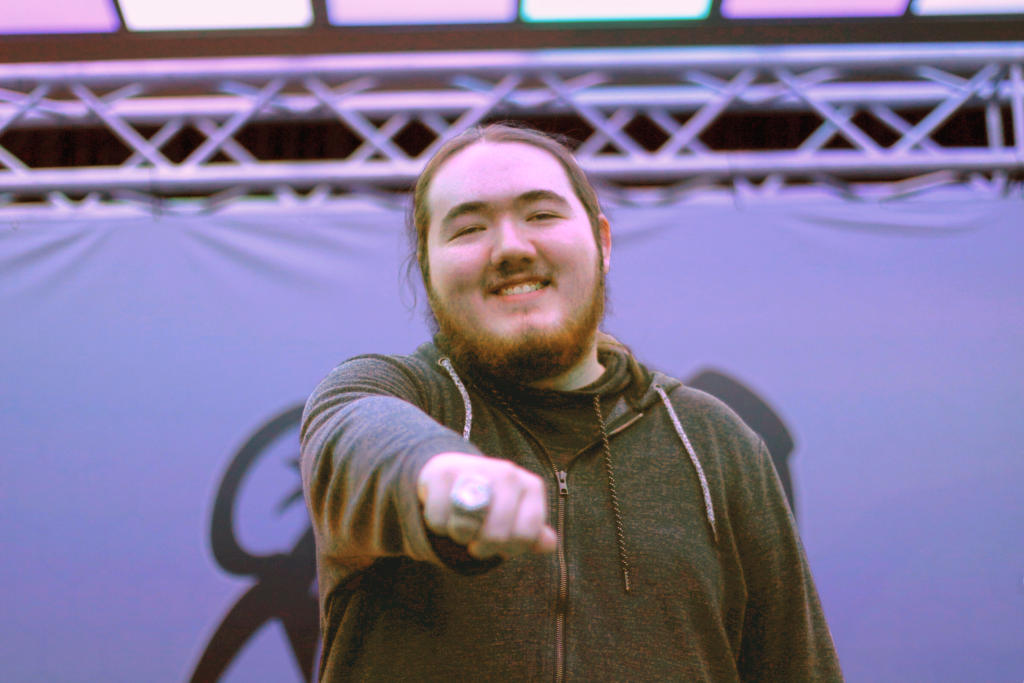 Penguin with his first place ring at Frostbite 2020.
Penguin with his first place ring at Frostbite 2020.
How did you first hear about Rivals and get into the scene as a competitor?
Penguin: I don’t remember how I first found rivals, but remember being attracted to it as “oh, it’s like Melee… but I can play it online (this long predates Slippi and before i knew about netplay).” At this point I had gone to my melee weekly for about a month and a half, but had no one to play it with outside of those weeklies.
I then, like any good Rivals player, stopped playing the game after about 2 weeks. A few weeks after I stopped playing Rivals happened to be Smash Con 2016, which I was attending in order to play Melee. I saw the Rivals booth and thought to myself, “Oh, I know that game! That Zetterburn’s fireball is kinda like Falco laser.” …I then went on to play the game for 4 days straight, DQ out of Melee, and come back the following SSC as a Top 10 player.
How long have you been competing in events? How long did you play online before entering brackets, and then how long did it take to enter your first local tournament?
Penguin: I’ve been competing in Rivals events since August of 2016, at Smash Con ‘16. I’m weird in that I found it offline first and did play in that bracket, getting 33rd. After that I played in strictly online tourneys for a year grinding my [butt] off, and then came back the next year to play in SSC ‘17, Shine ‘17, and finish the season with Genesis 5.
To answer how long I played before entering brackets, after that SSC ‘16 bracket on August 13th of that year, the next tournament I played in was NAS #20 on November 17th. In that 3 month gap I entirely played ranked/exhibition since I didn’t know where to find tourneys. I then found one of the old Rivals steam groups (which was already dead when I found it) and posted in there asking to play. Someone in there was kind enough to point me to the main rivals discord where I then also found the NCS discord and played in NAS immediately – where I won the tourney :).
How often do you practice the game and how has that changed over the years?
Penguin: My first year of playing the game I was a small child with lots of free time, meaning I was able to play Rivals for a minimum of 4 hours every day without fail… while also playing CS:GO competitively at the same time. At one point I played 5 hours a day, 7 days a week, for 8 months. It would not be an exaggeration to say I played on average, 4 hours of Rivals and 5 hours of CS:GO every day without fail.
Since then I’ve stopped playing CS:GO competitively, and any other game I play semi-competitively, takes much more of a backseat than CS:GO ever did. I simply don’t have the time to grind as hard as I once did.
For RCS Seasons 2-4 I played an absolute minimum of 2 hours every single day. I remember doing the math on my steam hours and calculating how many hours on average I played since the day I bought it, which at the time was 3.5 hours over 3 years. I typically ramp up the week before any major, and I pretty religiously don’t play the game for at least 4 days whenever I get back from a major. Gives me a nice cooldown from nonstop Rivals action.
During COVID my grind definitely slowed down, playing right now on average an hour every day.
You have been a Top 2 player for the last 3 years, while never dropping in rank since your first Top 50 appearance in Season 1. How have you kept such a high level of consistency throughout the majority of the game’s lifespan?
Penguin: I think there are 2 major factors that result in my consistency:
1. I put a lot of effort into my composure early on in my career. I remember very vividly playing against Kaos at Genesis 5 and being so nervous my hands were shaking and I swapped off of Absa simply because I couldn’t do any technical inputs. Since then I’ve taken steps to keeping cool while playing, on top of being an already pretty stoic person. Including breathing exercises, taking advantage of all time granted to me in a set, and yes… the mints.
2. My game-plan when it comes to a set is very flow chart-y and can apply to anyone I play against. I have a hierarchy of goals at every point of a game, and have a clear idea in my head of how to best set myself up to achieve the highest one. This is best exemplified in my edgeguards, where I do everything I can to slowly strip my opponent of their resources and cut-off as many options as I can, until eventually their only option is death.
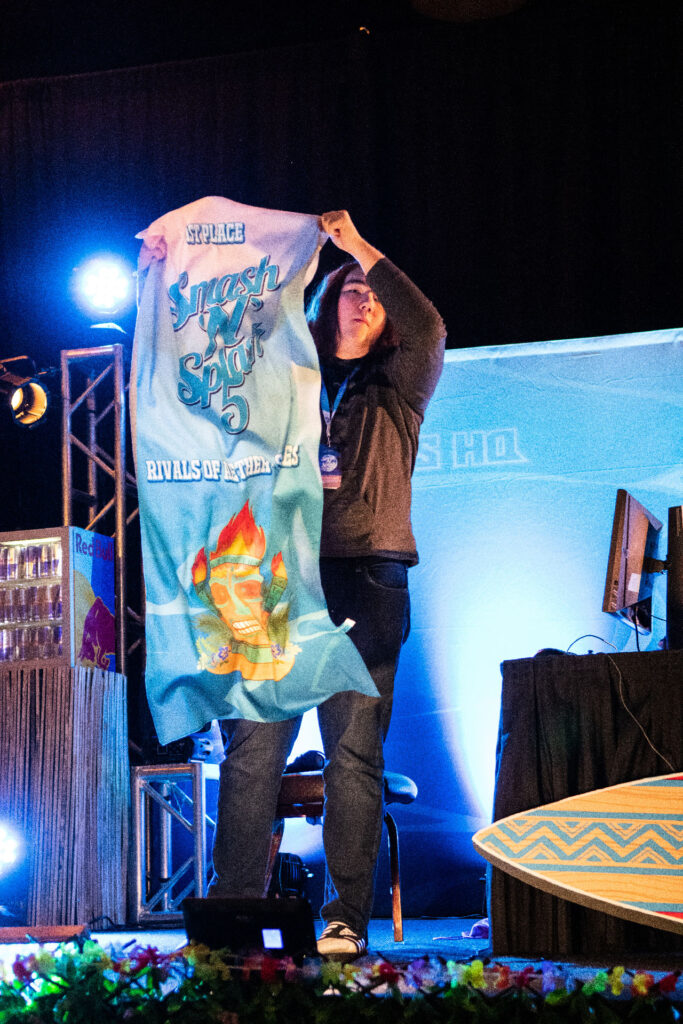
What has been your proudest moment throughout your career?
Penguin: I can’t pick between two, winning SnS5 or winning RCS Season 5 Finals. SnS5 was my 2nd big major win, but more importantly grands was a loooong set against Cake where I maintained myself and clutched it out in the end even after he got a bracket reset on me. Whether I was correct or not, at the time GTX felt like a fluke to me, so SnS5 was my first “real” major win. And then obviously winning an RCS Season is a crowning achievement for any Rivals player, but I’d be lying if I said an online tournament felt the same as the theater at Genesis.
After finally winning an RCS Finals event in Season 5, what are your goals in Season 6?
Penguin: One thing, and one thing alone, get ranked #1.
What’s the thing you’re looking forward to most this Summer (Rivals or otherwise)?
Penguin: Obviously I’m looking forward to Riptide a ton, and there’s a million reasons to be looking forward to Riptide. However, outside of that I’m not sure if there’s much more I’m looking forward to outside of a general return to normalcy (whatever that’ll look like) with vaccines and everything rolling out.
Do you have any personal goals or interests outside of Rivals that you’re aiming to focus on?
Penguin: In-terms of games I play both Rocket League and Valorant next to Rivals, where I’m ranked Champion 3 and Diamond 3 respectively for those curious.
Academically/career-wise I’m currently majoring in computer science with a focus on artificial intelligence and machine learning.

